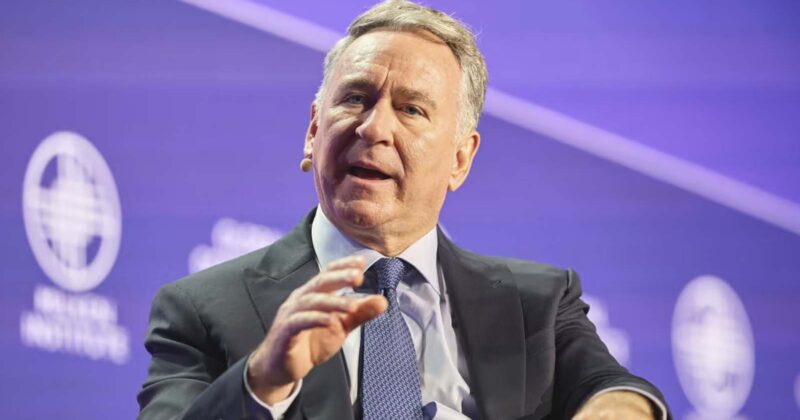With Election Day fast approaching, the stakes are higher than ever as Vice President Kamala Harris and former President Donald Trump make their final pushes in critical battleground states. Among those closely watching the race is Ken Griffin, founder of Citadel and a major Republican donor, who is now predicting Trump will return to the White House.
“The expectation today is that Donald Trump will win the White House in just a few days; we will know shortly,” Griffin commented during a panel discussion at the Future Investment Initiative in Saudi Arabia.
“We are at that moment of peak uncertainty. It is a race that Trump is favored to win but it is almost a coin toss,” he said according to Bloomberg. Griffin also mentioned during the forum that the conclusion of the presidential race is expected to bring more clarity to the markets.
“Big picture, the reduction in uncertainty is almost always positive for asset prices. I would say that post-election will generally see a risk … as people come to adopt a new regime, whether it’s a Harris regime or a Trump regime,” said Griffin.
“This uncertainty will be behind us.” Other economists seem to feel the same way.
“The biggest read-through for the election results into consumer spending in the future really has more to do with taxes than sentiment because we are going to have this big rewrite of the tax code into 2026,” Jefferies senior US economist Thomas Simons told Yahoo Finance. Simons is a Senior U.S. Economist at Jefferies, a global investment banking firm. He joined Jefferies in September 2009 as a Money Market Economist.
Concerns about tax adjustments “could end up impacting consumer spending if the Democrats do well. And then there’s this concern that most of the Tax Cuts and Jobs Act is going to be reversed, or there’s going to be additional taxes on upper-income, wealthier households. They’ve been the ones that have been driving the overall spending numbers to this point,” he noted further clarifying that “taking away some positive wealth effect… then there is a risk that consumer spending might slow.”
Simons finished, “We have seen essentially since 2016 that there is this sort of zig-zag seesaw pattern of when the Republicans are in office or are doing well in polls, the Republican sentiment goes to the moon, and Democrats go into the basement and literally vice versa.”
In the lead-up to elections, markets can experience heightened volatility as investors adjust portfolios based on polling data, policy proposals, and shifts in economic risk associated with different candidates or parties. For Griffin and others in the financial world, the potential return of Trump is seen as a favorable prospect for markets, though uncertainty continues to loom over Election Day.

